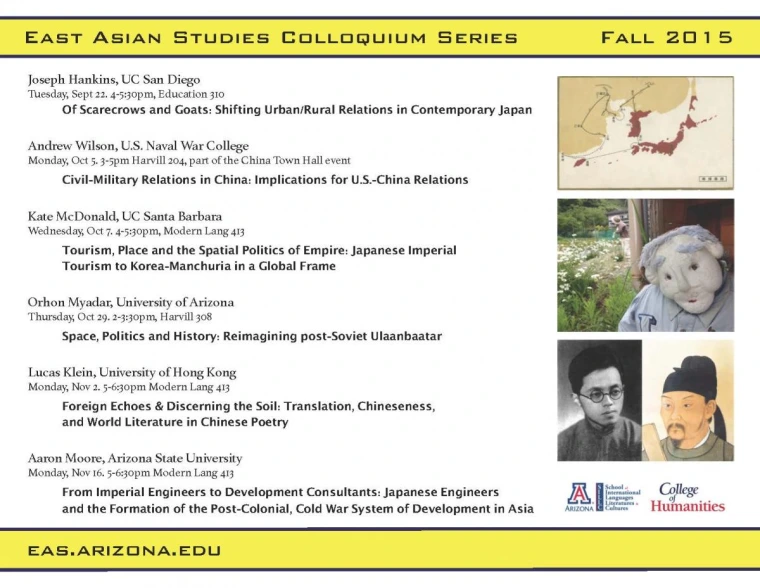Kate McDonald is Assistant Professor of History at the University of California at Santa Barbara and a 2015-2016 UC President’s Faculty Research Fellow in the Humanities. She researches the history of mobility as it intersects with the history of social thought, cultural politics, and political economy in late nineteenth- and early twentieth-century Japan. Her most recent article, on the history of global transportation networks in twentieth-century East Asia, appears in Technology and Culture. Her first book, tentatively titled Placing Empire: Travel and the Social Imagination in Imperial Japan, is currently under review.

http://www.history.ucsb.edu/people/person.php?account_id=347
Title: Tourism, Place and the Spatial Politics of Empire: Japanese Imperial Tourism to Korea-Manchuria in a Global Frame
Abstract:
In the late nineteenth and early twentieth centuries, the most powerful countries on the globe built railways that spanned continents, funded steam-shipping lines that traversed oceans, and sent messages nearly instantaneously across vast distances with the telegraph. Commentators declared that such technological achievements “obliterated” geographic barriers and “annihilated,” in the famous words of Karl Max, “space by time.” Such rhetoric continues to shape historical representations of the twentieth century today, which describe the period as one of “a world connecting” in which there occurred a global transformation of time and space.
This talk revisits the history of the global twentieth century through one of its most defining practices: tourism. Looking at the discourses and practices of Japanese tourism to Korea and Manchuria in the 1920s and 1930s, I consider how new concepts and experiences of place came to play a defining role in the reproduction of empire in the post-World War I era. Through this examination of the spatial politics of empire in Japan and around the globe, I show that, far from disappearing, place became one of the most powerful tools for sustaining unequal relationships within liberal, imperial societies in the post-Wilsonian world.


